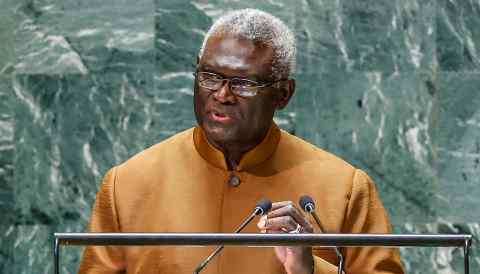The U.S. in late May eased but did not remove sanctions against Myanmar -- sending a signal that summed up the view among many Western governments of the situation in the once closed and repressive country. Myanmar has made progress toward democratizing in recent years, including electing its first civilian government since 1962 in November last year, when the National League for Democracy, led by Aung San Suu Kyi, stormed to power by winning absolute majorities in both chambers of Myanmar's parliament.
But on some other measures the country has been slipping backward. On humanitarian issues, the move toward democracy has been accompanied not by an opening of society and increased rights and protections for all the citizens of the country, but quite the contrary. As the majority of the population is finding its political voice after decades of repression, radical nationalists from the Buddhist majority are using that voice to abuse the country's minorities -- particularly the Muslim Rohingya, who account for an estimated 1 million to 1.3 million people of the total population of 53 million or more.


